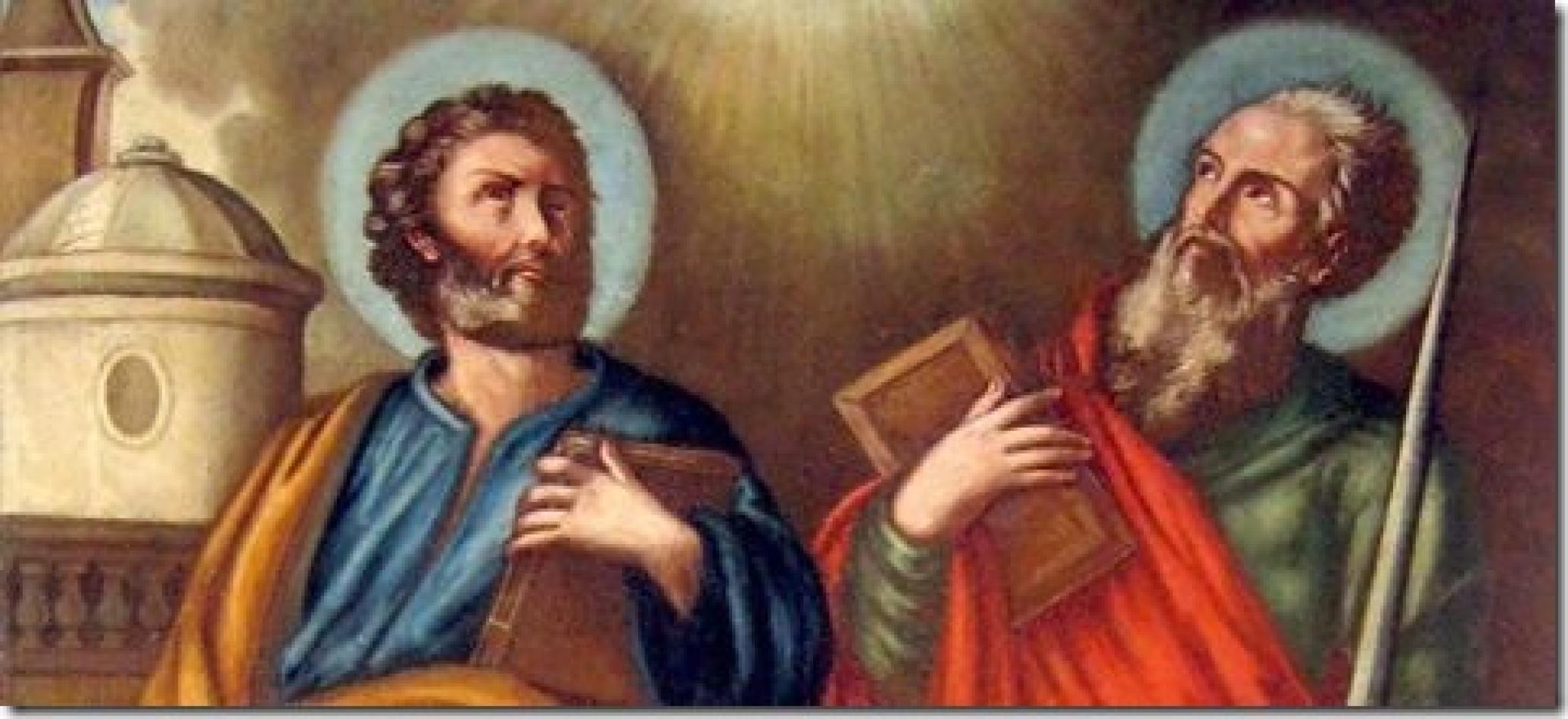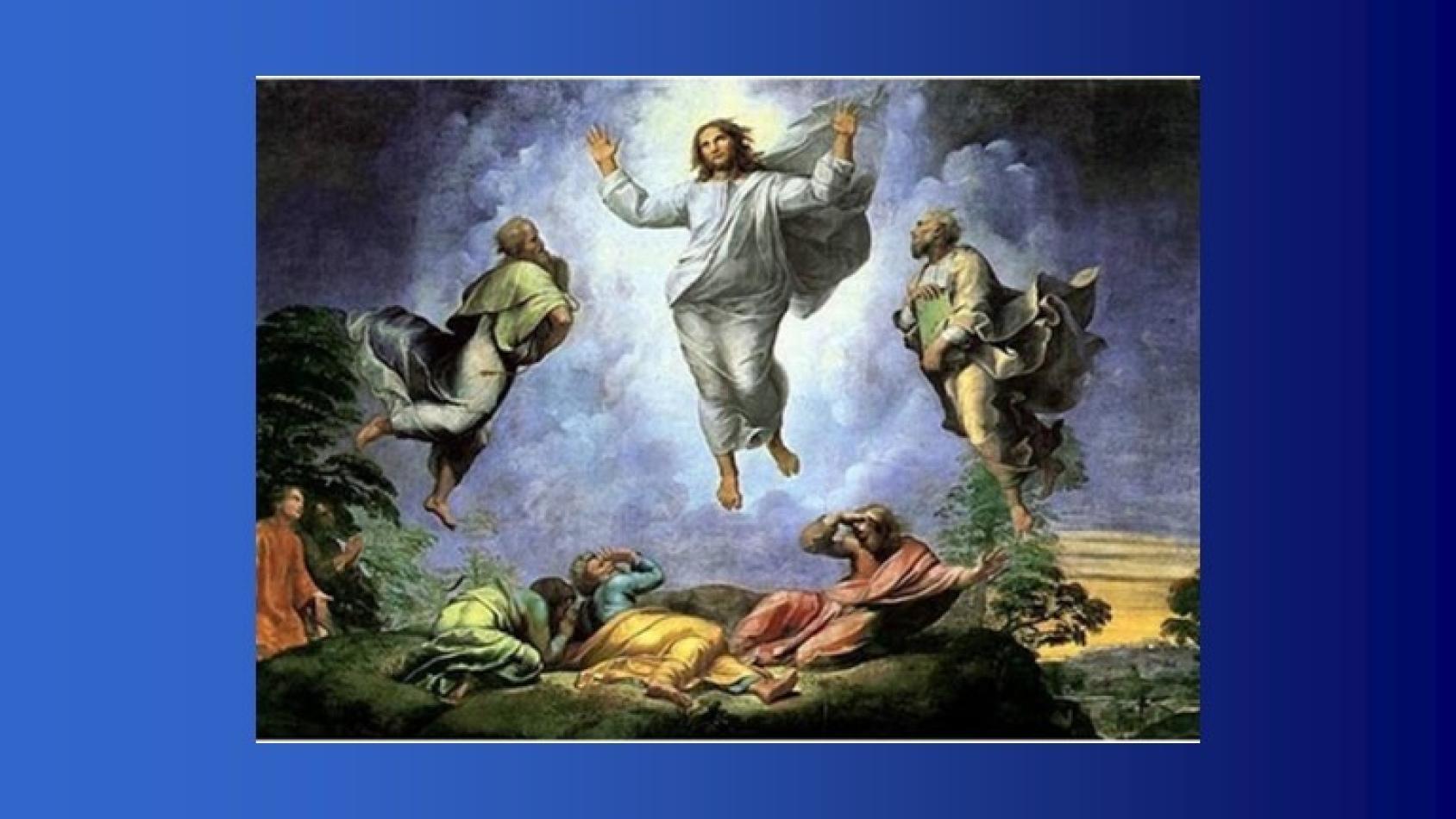Daniel Comboni
Comboni Missionaries
Institutional area
Other links
Newsletter
This year, the Solemnity of Saints Peter and Paul, celebrated on 29 June, falls on a Sunday. It is an opportunity to speak about these two great apostles, to praise the Lord for these pillars of the Church, but above all to reflect on the witness they left us. (...)
In the Footsteps of Peter and Paul
“You are the Christ, the Son of the living God.”
Matthew 16:13–19
This year, the Solemnity of Saints Peter and Paul, celebrated on 29 June, falls on a Sunday. It is an opportunity to speak about these two great apostles, to praise the Lord for these pillars of the Church, but above all to reflect on the witness they left us.
Peter and Paul: so different, and yet so close!
Simon, son of John, nicknamed Peter (Kepha, “rock”) by Jesus, was a fisherman from Capernaum, in outlying Galilee: a simple and rough man, stubborn and headstrong, enthusiastic and impulsive, generous but inconsistent, to the point of cowardly denying the Master. Chosen by Jesus as the “head” of the Church (see Gospel: Mt 16:13–19), Peter dedicated himself especially to Christians of Jewish origin.
Saul of Tarsus, known as Paul (Paulus, in Latin), a Roman citizen, Pharisee, son of Pharisees, and tentmaker by trade, was instead a refined intellectual. He was educated in Jerusalem at the school of the famous rabbi Gamaliel, and became a fanatical defender of the Law and a zealous persecutor of Christians. Around the year 36, on the road to Damascus, Jesus appeared to him: thus began the most extraordinary conversion in the history of the Church.
Paul became the “thirteenth apostle,” a herald of the Gospel to the Gentiles, Greeks and Romans alike, and the greatest missionary of all time. For around thirty years he travelled over 20,000 km by land and sea, driven by his passion for Christ. Emptied of the “vinegar” of fanaticism, his heart filled with the “honey” of Christ’s love, becoming a “chosen instrument” of the Lord (Acts 9:15).
The Solemnity of Saints Peter and Paul unites in a single celebration two very different figures, who met only rarely in life but clashed over differing views. The Church thus teaches us that unity is not uniformity, but a symphony. Christian life is plural and thrives on diversity.
According to ancient tradition, both were martyred in Rome — Peter crucified, Paul beheaded — on the same day, during Nero’s persecution, between 64 and 67 AD. Their martyrdom, the ultimate testimony of faith and love for Christ, united them.
The Mysterious Shadow of Peter
When I think of Peter, I am reminded of what the Acts of the Apostles tell us about his… shadow! The people of Jerusalem brought the sick into the streets on beds and mats so that at least Peter’s shadow might fall on them as he passed by (Acts 5:15).
What could be more discreet, intangible, and silent than a shadow? And yet, Peter’s shadow was alive and active. A mysterious shadow that left light and life in its wake. It recalls Jesus, who “went about doing good and healing all” (Acts 10:38). It was undoubtedly the shadow of Jesus! There is no shadow without light: the sun of Christ shone upon Peter, enveloped his person, guided his every step. It was Jesus hiding in the shadow of his beloved friend!
And what about our shadow?
Like Peter, we too are called to be a shadow of Jesus. A benevolent shadow that offers relief and protection, “like the shade of a great rock in a thirsty land” (Isaiah 32:2). Many people live under the burning sun of hunger, injustice, anguish and loneliness. It is not grand speeches or dramatic gestures that bring comfort, but the quiet, friendly shadow of someone who walks beside them.
We should ask ourselves: what is our shadow like? What do we leave behind us? From time to time it is good to cast a furtive glance and catch our shadow in action. Is it sowing goodness? Or is it destroying, in secret, what we try to build in the light? Is it radiant, as a projection of the risen Christ? Or is it darkened by selfishness, greed, thirst for power, or enslavement to pleasure?
Look at the trail your shadow leaves, and you will know whether the sun of Christ truly illuminates your life, or whether your heart has become a black hole that devours every glimmer of light.
One person can make a difference!
Few will ever match Paul in his passion for Christ. He is, as Benedict XVI said, “the first after the Only One.” His figure and the inspired Word of his Letters continue to be a beacon for the Church. It is amazing how one person — through their faith, their thought, or their personality — can change the course of history, for better or worse. Recent examples abound.
In salvation history, when God wants to begin something new, He chooses a person — a “yeast” through whom His grace may grow in the many. It is striking to think that the “yes” of many mysteriously passes through the “yes” of just one.
God in search of a person: me!
A single individual can make a difference. That is why God tries to touch the heart of someone in order to save an entire context. But sometimes, He finds no one: “I looked for someone among them who would build up the wall and stand before me in the gap on behalf of the land, but I found no one” (Ezekiel 22:30).
Today, God addresses each of us, offering a life of unimaginable fruitfulness. Every Christian, in whatever vocation, is at some point called to make a fundamental choice:
– To embrace an authentic Christian way of life, in the footsteps of Peter and Paul, allowing themselves to be lifted by the Spirit, inspired by a double passion: for Christ and for humanity;
– Or to choose a mediocre life, a low-key existence, content to go with the flow and seek small daily satisfactions — becoming, in time, “insignificant.”
It is a great wager! The destiny of many may depend on our response.
Will Jesus find in us the courage and generosity to accept the challenge?




